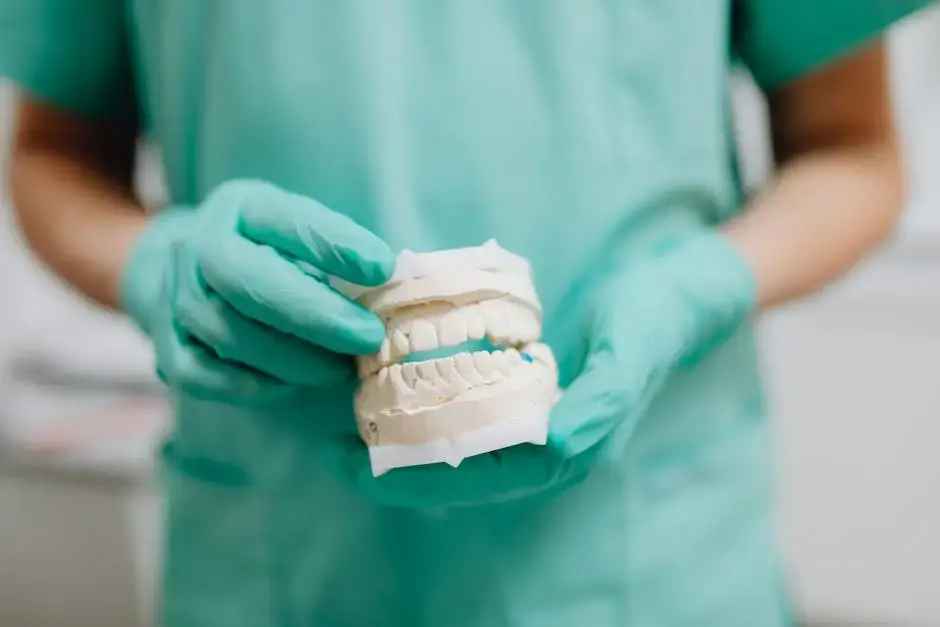7 Signs You Might Need a Bite Adjustment
- Seona seona@usestyle.ai
- Aug 6, 2025
- 4 min read
Are you experiencing discomfort while chewing or notice that your teeth don’t seem to fit together as they should? A bite adjustment could be the solution! In this article, we’ll explore the signs that indicate it might be time to seek professional help for your bite. Let’s dive in and discover what to look for!

1. Uneven Wear on Your Teeth
If you notice that some of your teeth are wearing down faster than others, this could be a clear indication that your bite is misaligned. Uneven wear can lead to further dental issues if not addressed. For instance, regularly checking your teeth with a dentist can help pinpoint which teeth are experiencing this wear. Regular wear patterns can reveal so much about your bite, making it a good conversation starter at your next dental appointment.
Moreover, keep an eye on the specific locations of the wear. For some, the front teeth may show signs of wear while for others, the back teeth might be more affected. This variance tells your dentist which areas to focus on for a potential bite adjustment.
2. Frequent Headaches or Jaw Pain
Chronic headaches or persistent jaw pain might not just be stress-related; they could be signs of a bite issue. Misalignments can cause strain on your jaw muscles, leading to discomfort. Interestingly, these headaches often mimic migraine symptoms, which can complicate things. If you’ve been experiencing headaches regularly, it might be beneficial to consider an evaluation focused specifically on your bite.
In fact, speaking with someone who understands the relationship between bite alignment and tension can shed light on how your dental health is connected to overall body relaxation. Additionally, if you find that certain activities seem to worsen these pains—like chewing or even talking—make a mental note. Those little details can truly help your dentist in diagnosing the issue.
3. Difficulty Chewing Certain Foods
If you find it hard to chew certain foods, especially tougher items, this could indicate that your bite is not functioning properly. A proper bite should allow for easy chewing and enjoyment of your meals. Struggling with steak or crusty bread? If that sounds familiar, it might be time to reassess your bite. This difficulty can stem from misalignment, which can throw off your chewing rhythm.
You deserve to enjoy all types of food without hesitation or discomfort! Next time you struggle with a chewy piece of meat or crunchy vegetable, consider keeping a journal of your experiences. Noting down which foods cause you trouble can help your dental professional assess your situation more effectively.
4. Teeth Grinding or Clenching
Do you catch yourself grinding your teeth at night or clenching your jaw during the day? These habits can be a response to an improper bite, causing further problems if left untreated. Often, people aren’t even aware they are doing this until someone points it out. It’s interesting to know that this behavior can lead to worn-down teeth and even jaw issues later on.
If you’ve woken up with sore jaw muscles or a dull headache, these might be clues that you’re grinding your teeth at night. A nighttime mouth guard could be recommended to alleviate some of this pressure. Don’t hesitate to reach out to your dentist if you suspect that bite issues are influencing your grinding habits!
5. Change in Your Smile's Alignment
If you notice that your smile seems off or your teeth look misaligned, it might point to bite issues. Changes in alignment can happen gradually and are often a sign that dental intervention is needed. Many people might not notice these subtle shifts until they become quite pronounced.
Your smile speaks volumes about your confidence. So, feeling self-conscious about your misaligned teeth can make situation even trickier. Don’t shy away from discussing these changes with your dentist; they may offer solutions that can restore both your smile and your confidence!
6. Discomfort or Sensitivity in Your Teeth
Pain or sensitivity in your teeth, particularly when biting down, might signal that your bite is not right. This discomfort should not be ignored, as it can lead to more significant dental issues. If something as simple as a cold drink makes your teeth throb, that’s a sign! Don’t simply brush it off — seek advice!
Sensitivity can indicate an underlying issue that's lurking beneath the surface. If your teeth react strongly to certain stimuli, like hot or cold foods, it means they're trying to tell you something. Ensure you bring these concerns up with your dentist; they can help uncover the root cause and suggest strategies to ease your discomfort.
7. Feeling Your Teeth Collide Off-Center
When your teeth come together, they should fit snugly with even contact. If you feel like your teeth collide off-center, it’s a strong sign that a bite adjustment may be necessary. That feeling can be rather unsettling, right? Teeth should fit together kind of like puzzle pieces—but if they don't, it might leave you in discomfort.
This misalignment can lead to discomfort while chewing, so it's essential to keep track of when this sensation occurs. Recognizing this is the first step toward advocating for your oral health. By noting these feelings, you can have a more informed discussion with your dentist, helping you get the relief you might be seeking.







Comments